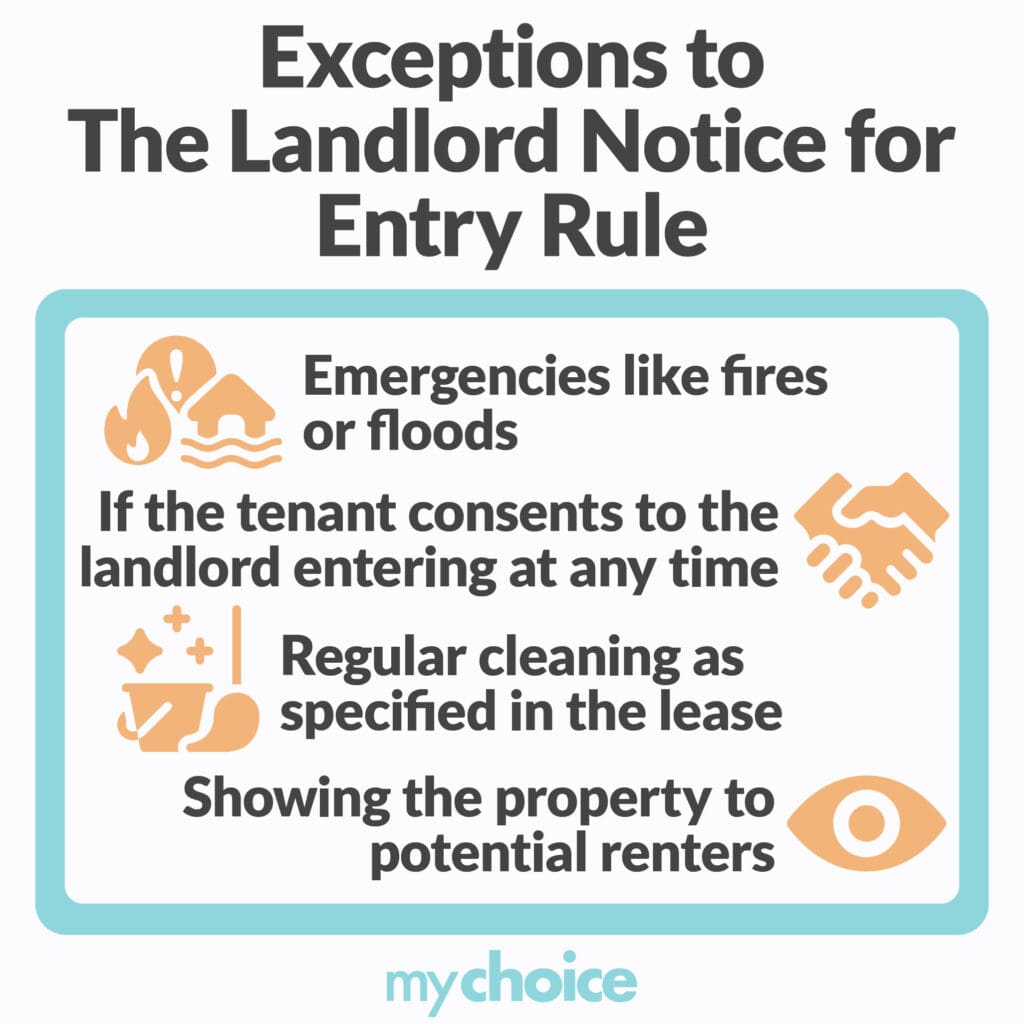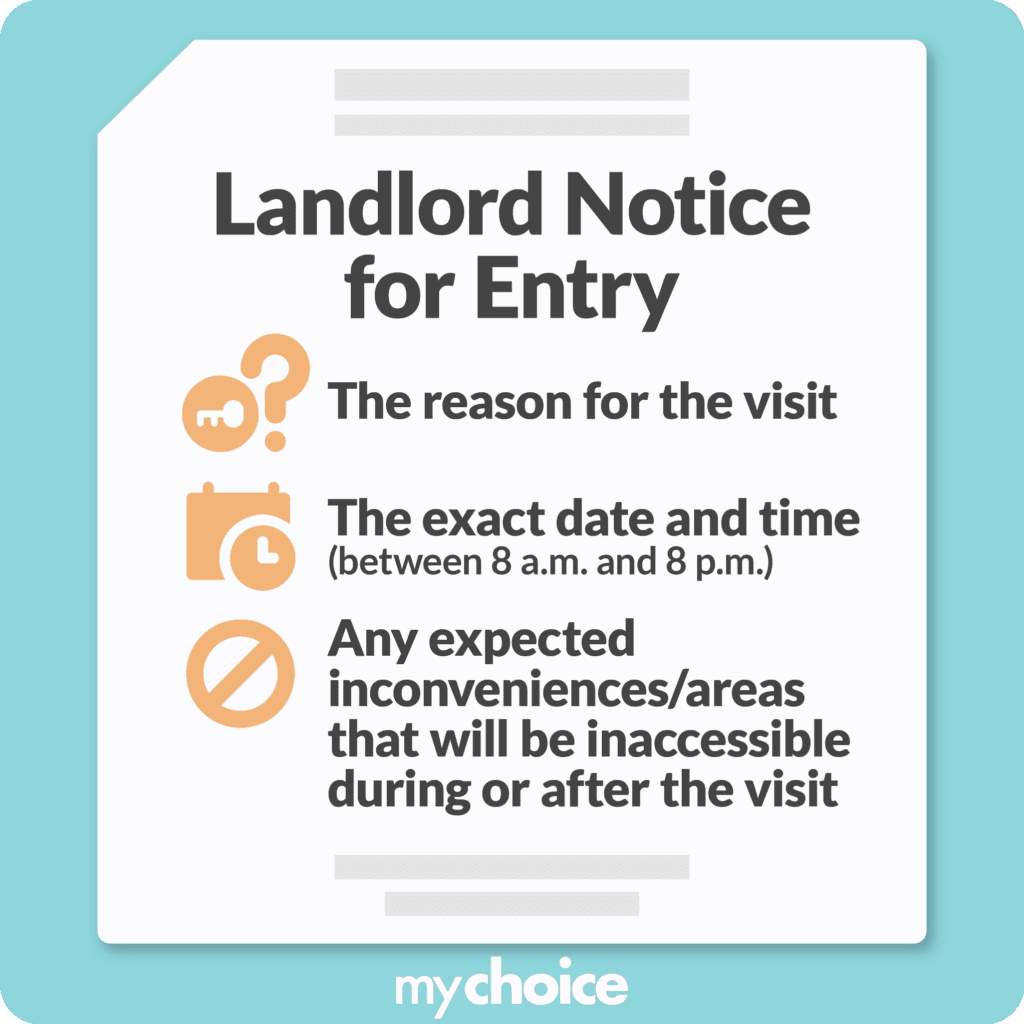In Ontario, landlord-tenant relationships include clear guidelines on access to the rental unit. Understanding these rights and procedures regarding landlord entry can ensure a smoother living experience for both parties. This quick guide helps tenants understand when a landlord can enter their unit and how to navigate situations where rescheduling may be necessary.
Tenant’s Right to Reasonable Notice: Can You Refuse a Showing in Ontario?
Ontario tenants can refuse entry to a landlord under the following circumstances:
- The landlord doesn’t give the tenant a written notice at least 24 hours before entering the unit.
- The notice contains errors, such as missing information or an unreasonable time slot outside the legal window.
- The landlord requests entry outside the pre-arranged schedule or without the tenant’s consent.
- The landlord makes an unreasonable time change request.
Entry Violation Investigations and Penalties
In Ontario, the Landlord and Tenant Board (LTB) can investigate and potentially impose penalties for various entry violations committed by landlords. An investigation may occur under the following circumstances:
Should the LTB find the landlord guilty of any of the offenses committed above, they can impose the following penalties:
Under extreme circumstances, a tenant might sue a landlord in civil court, or the LTB can issue an order for the landlord to sell their property.
Common Reasons a Landlord Might Need to Enter Your Home
Your privacy matters, but there are several reasons why a landlord may need to enter your home:
- They plan to sell their property and show it to prospective buyers.
- They must oversee necessary repairs and maintenance.
- Your municipality requires a specific inspection.
- They have scheduled a pre-arranged cleaning.
When Can a Landlord Enter Your Property Without Notice in Ontario?
There are very few situations where a landlord can enter your property without providing you with notice. The primary exception is an emergency, which might involve:
- Fire or flooding
- A significant leak that could compromise the structure of the property
- A gas leak or other safety hazard
In addition, if your tenancy agreement includes regular cleaning at specific intervals, the landlord may not need to provide additional notice for those particular times. However, confirming the appointment with you beforehand is still good practice for them to avoid misunderstandings.

What Should a Landlord Notice for Entry Include in Ontario?
A landlord notice for entry must include specific details to ensure they comply with the RTA and protect the tenant’s right to privacy. A notice should provide the following essential information:
- An apparent reason for entry, such as repairs, maintenance, inspections, or showing the unit to prospective tenants
- The date and timeframe for entry
- The landlord’s contact information for the tenant to reach out with questions or concerns
- Alternative agreements if the proposed time is inconvenient for the tenant
- (Optional) An estimate of how long the landlord intends to visit the unit

Example of a Proper Notice of Entry
To: [Tenant name]
From: [Landlord name]
Date: [At least 24 hours before intended entry]
Subject: [Notice of entry – reason for entry]
This notice is to inform you of my intention to enter your rental unit located at [Unit Address] on [Date of Entry] between [Start Time] and [End Time] (within the legal window of 8:00 am to 8:00 pm).
This entry is part of the building’s required fire alarm inspection, which should take approximately thirty minutes to one hour.
If you have any questions or concerns regarding this notice, please contact me at [Landlord Phone Number] or [Landlord Email Address].
Thank you for your cooperation.
Tips for Negotiating Entry Times
Whether a landlord or tenant, negotiating entry times should be a transparent, respectful, and accurate process. Here are some tips for negotiating convenient entry times.
Key Advice from MyChoice
- If you need clarification about the legitimacy of a landlord’s entry request, you can consult the LTB in Ontario for more information.
- If you’re a landlord, ensure you deliver your notice to ensure the tenant receives it as quickly as possible, such as handing it to them directly, leaving it under the door with a knock, or sending it by registered mail.
- Even with a valid notice, tenants cannot unreasonably deny entry based solely on inconvenience. However, they can work out a more suitable time with the landlord.
- As a tenant, you are entitled to your privacy. Landlords cannot take photographs of your home without your explicit consent.








